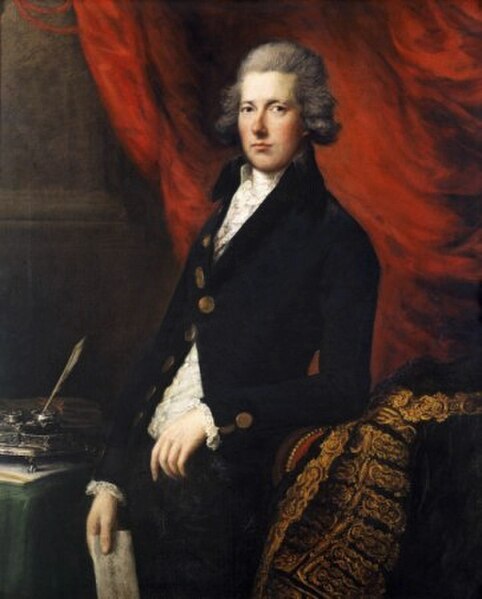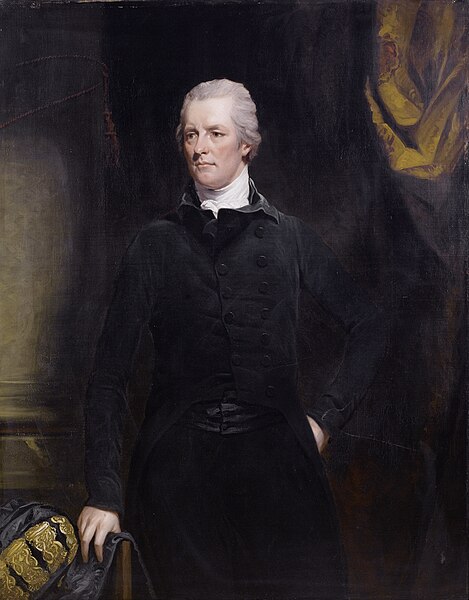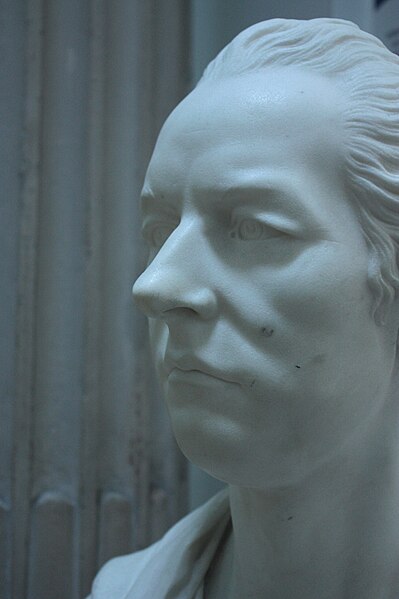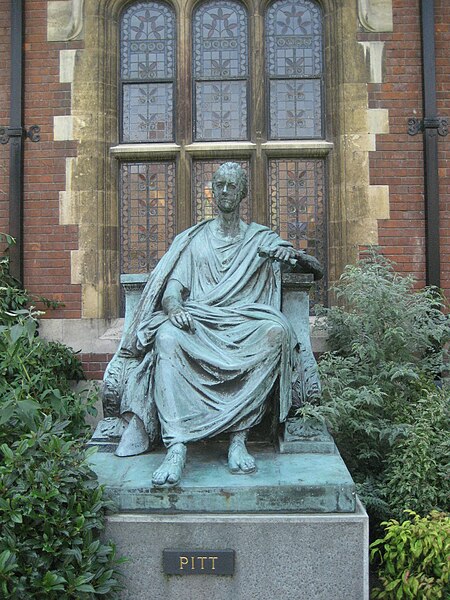The Triple Alliance of 1788 was a military alliance between Great Britain, Prussia and the Dutch Republic. Great Britain saw it as necessary to maintain the balance of power, and Prussia was hoping for the territorial gains. The alliance was primarily aimed at the Russian Empire, which stood to increase its influence with its looming victory over the Ottoman Empire. Due to efforts of Russian diplomacy, particularly in fostering parliamentary dissent in Great Britain, where the main proponent of action against Russia, William Pitt the Younger, lost support, the Alliance fell apart before it was ready to engage in planned military action against Russia. The destruction of the Triple Alliance is considered a major success of the Russian diplomacy.
William Pitt the Younger
William Pitt was a British statesman, the youngest and last prime minister of Great Britain from 1783 until the Acts of Union 1800, and then first prime minister of the United Kingdom from January 1801. He left office in March 1801, but served as prime minister again from 1804 until his death in 1806. He was also Chancellor of the Exchequer for all of his time as prime minister. He is known as "Pitt the Younger" to distinguish him from his father, William Pitt, 1st Earl of Chatham, who had previously served as prime minister and is referred to as "William Pitt the Elder".
Portrait by John Hoppner, c. 1804–05
William Pitt by Joseph Nollekens, 1808
Statue of Pitt at Pembroke College, Cambridge, his alma mater
The huge monument to William Pitt the Younger by J. G. Bubb in the Guildhall, London, faces an equally huge monument to his father, William Pitt the Elder, in a balanced composition





